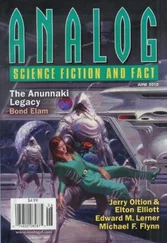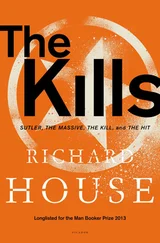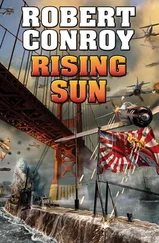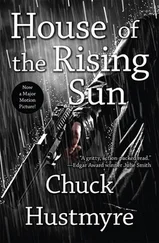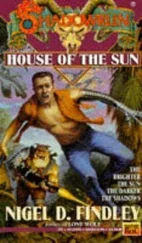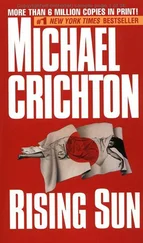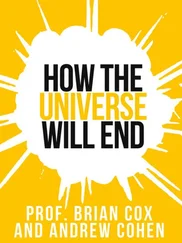“Good lord, Thomas. This is so much food.”
“After I wrote that film,” he said, “after researching the ways to prepare for an EMP, I decided to build this room. Primarily to amuse myself. I never imagined I would have to use it.”
She knew he wanted her to be impressed with his astonishing provisions, and of course she was. But seeing such careful preparation also made her feel uncomfortable. Conspiratorial. It seemed impossible that anyone could know about an EMP before it happened, but a part of her still wondered if he had.
“It’s kind of you to share your food with me. But I can’t stop thinking about how similar all this is to your screenplay. That’s why I came here, to talk about The Pulse, and then a fucking pulse happens right after I land. That doesn’t seem a little strange to you?”
“It’s an incredible coincidence,” he said. “But so what? How does it change anything?”
Skylar didn’t know. But she also didn’t see how it could be an accident. In Thomas World, the entire story had taken place inside a simulated world created by the eponymous protagonist, and the success of this film had furnished real-life Thomas with the kind of money and fame few screenwriters ever achieved. Wired even published a story about the topic called Art Creates Life: How Thomas Phillips transformed fantasy into reality, in which the author postulated how the film’s success—and the ripple effects created by that success, including the author’s own Wired story— were all part of a larger, artificial reality designed by some extra-dimensional Thomas. Even late-night comedians pounced on the idea, like Trevor Noah, who on “The Daily Show” quipped, Hey Thomas, if this world is yours, that means Donald Trump is your fault. Thanks a lot, asshole!
“Maybe it’s not even happening,” she said. “Just like in your first film.”
“Maybe it isn’t. But what then? We just sit around and wait for the game to end?”
Skylar stared at him. She picked at her cuticles.
“If you saw the film,” Thomas said, “you know it doesn’t matter if any of this is real. The only thing that matters is what we do with the reality we’re faced with.”
“Like just sit here and eat peanut butter and wait for everyone else to die?”
“If you want to live, I don’t see what other choice we have.”
“That’s not good enough,” she replied. “We have to share your food. We have to help other people. We have to do something.”
“If anyone else around here finds out about my safe room,” said Thomas, “they will march over here with guns and take it from us. We won’t be able to stop them. There will be too many.”
Skylar remembered the starving mob in his screenplay and knew Thomas was right. If they were going to help someone, it had to be on the sly. And a limited number of people.
“I think we should check on Seth,” she finally said. “You promised him you would.”
“Skylar—”
“I know you don’t want to leave this fortress of solitude. But if Seth is dead, we really should help the wife and kids.”
“That’s a nice idea,” Thomas agreed. “Except Natalie and her family don’t live around here.”
“Where do they live?”
“In Tulsa.”
“Like Oklahoma?”
“Which is four hours away. At least it was.”
“Holy shit,” Skylar said. “I didn’t expect that.”
“I know I made a promise, but that was before all this. That was basically about money. Now, trying to save their lives could mean losing our own.”
“So all you want to do is hunker down? Live off your rations until everyone dies and then repopulate the world?”
“I didn’t say that. But it’s a long drive into empty countryside where anything might happen. We might not make it there. We might not make it back.”
“Maybe not,” she said in a quiet voice. “But what’s the point of surviving all this if survival is the only point?”
Natalie tried to focus on the road, but she kept looking up at the new star. It had risen higher into the sky and seemed to be following her. She turned away and imagined the faces of her boys, the moment she would have them safely in her arms.
“I just can’t believe it,” Blake said. “It’s like something in a science fiction movie.”
“You don’t have children, do you?”
“No, why?”
“How about a girlfriend?”
“Nah. I moved here from Austin a few months ago but my girlfriend didn’t come along.”
“Aren’t you worried about her?”
“I suppose, but we broke up and she’s far away and I don’t know what I can do about it, anyway.”
“You could worry about her like an empathetic human being!”
“Eh, they’ll get the power back on pretty soon. And even if they don’t, what’s the immediate danger?”
They were on the 71st Street bridge, crossing the Arkansas River. Steering the drink cart between numerous stalled cars made it feel like they were moving faster than they really were. Many of the vehicles were still occupied, as if their drivers expected someone to come along and rescue them.
Natalie was struck then by an insight so obvious that it was shameful to have only just thought of it. Everything that had happened this morning—the immobilized cars, the power blackout, the dead cell phones—was almost identical to the central premise of Thomas’ new screenplay. He’d told her about it at the reunion, about how much the concept had frightened him while writing it. In his movie the event had been caused by the sun, but the effect was essentially the same.
Cool dread seeped upward from her toes, as if she were being lowered into a dark lagoon. Because in the story Thomas had written, everything that died stayed dead. It was the computer chips inside things that were fried, and they couldn’t be easily replaced because the machines that manufactured such chips required chips themselves. Natalie hadn’t understood the interest in a movie like that, since the lives of each character became immediately worse after the pulse and kept on getting worse. What followed was a gradual descent of American culture into a savage state just this side of the stone age.
“I can’t believe you’re not more worried about this!” she said and gestured toward the column of black smoke on their right. “On top of everything else, a freaking plane crashed.”
“Look, I realize this is a messed-up situation, but I don’t see how it helps to panic.”
“Who’s panicking? I just want to make sure my children are safe.”
“Why wouldn’t they be?”
“Because this is happening and I’m not there!”
“I’m saying unless a plane went down on top of the daycare, they’re fine. They probably don’t realize anything is wrong except the power is out.”
“People at the daycare might be doing what I’m doing. Going home to get their children. Then mine are left all alone.”
“You think anyone would abandon a group of children at daycare?”
Natalie swerved around a glut of stalled traffic at the Riverside intersection. There were at least ten cars crowded next to each other, filling all available lanes in both directions, as if an accident had occurred. People were looking at the road or at the sky or both. Someone yelled “Hey, lady!” but Natalie drove on without looking to see who it was.
“You’re being an ass,” she said to Blake.
“And you’re being hysterical.”
“I am not hysterical!”
They rode in silence for a while. At a Burger King she saw a line of stalled cars in the drive-through lane. Thirty or forty people stood in the parking lot of Quik Trip. There were people on sidewalks and loitering in the street with strange looks on their faces, confused or expectant or frightened. No one seemed to know what to do.
Читать дальше

